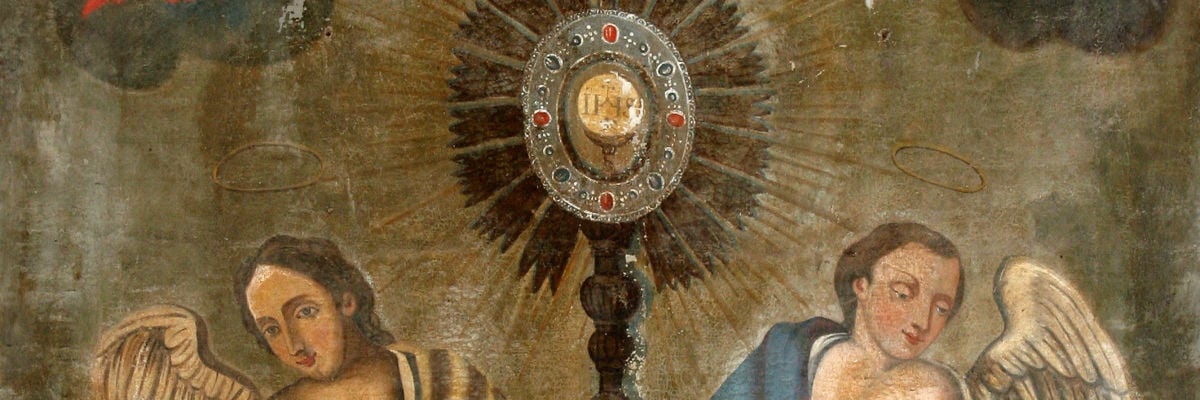
Question:
Answer:
From the earliest days of its existence, the Church has been centered on the celebration of the Eucharist. Celebration of the Lord’s Passion has remained the source of power and grace until the present day. But from the thirteenth century on, in the Western Church great devotion to the eucharistic presence developed even outside of the Mass.
In his book In the Presence of the Lord, Fr. Benedict Groeschel writes: “Since the time of St. Francis and St. Thomas Aquinas in the thirteenth century there has not been a single Catholic saint for whom this devotion has not been an integral part of the spiritual life.” Actually, such devotion is rooted in the Church Fathers and may have arisen in practice by the end of the sixth century.
Jesus told Thomas who had doubted, “Put your finger here; look, here are my hands” (John 20:27). Thomas looked and believed. Such recognition caused him to fall prostrate and say: “My Lord and my God!” This is what eucharistic devotion causes people to do as well. If one believes that the Eucharist is truly the body and blood of the Second Person of the Blessed Trinity, it is only natural to revere it even when we are not receiving it.



